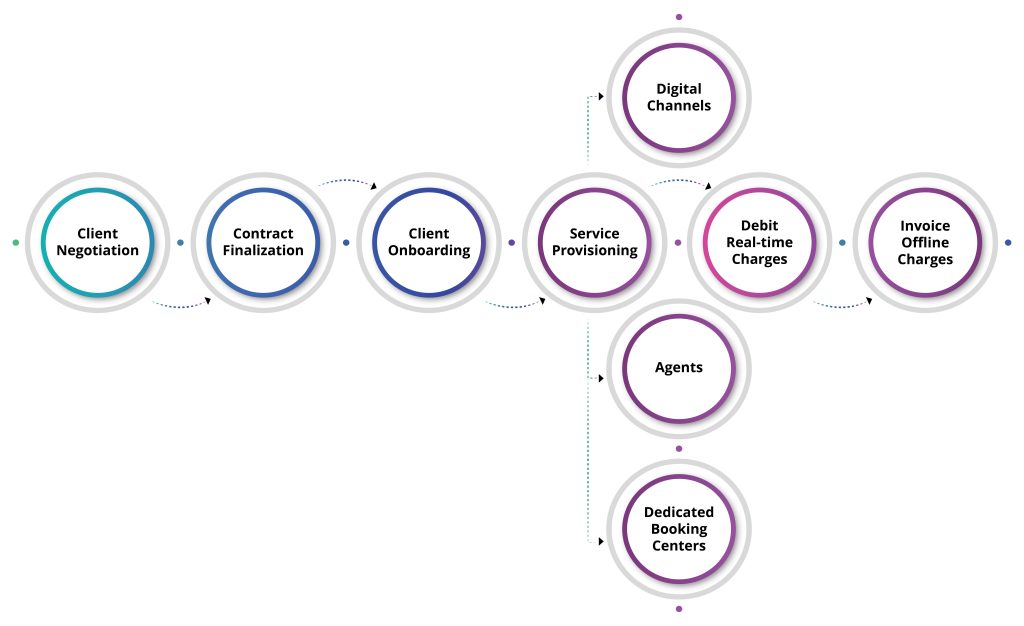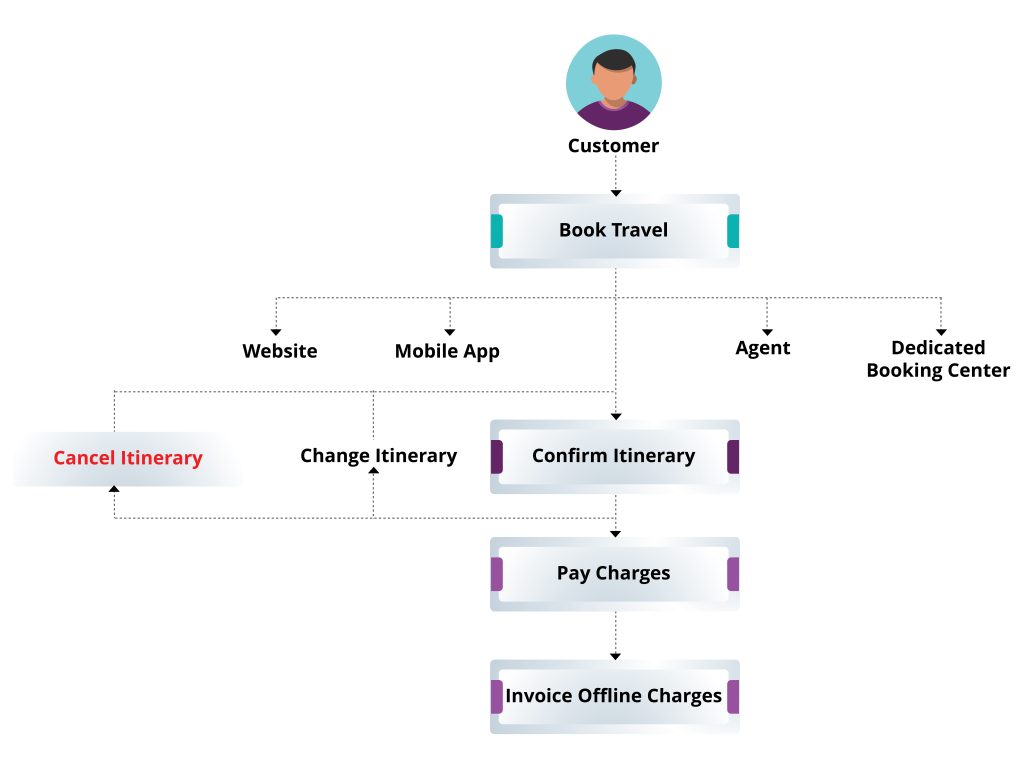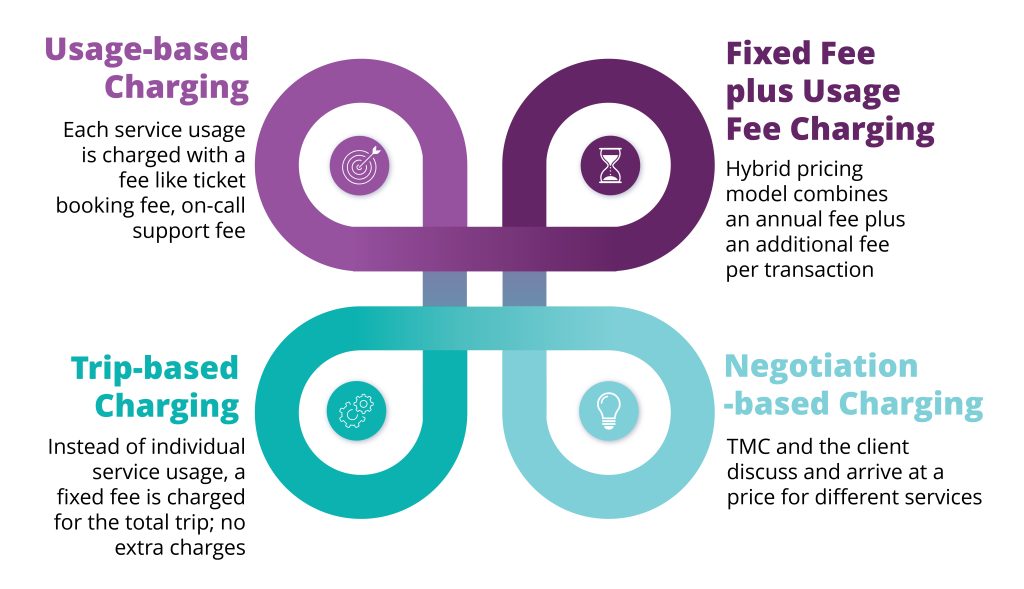After an unprecedented two-year lull, travel, especially business travel is back with a bang. Spurred on by a resurgence in face-to-face meetings and events, business travel is expected to reach pre-pandemic levels this year with spends of USD 1.4 trillion.1 This is expected to increase to USD 1.8 trillion by 2027. According to PWC, 12% of global airline passengers are corporate travelers, but they contribute to 75% of airline profits.2 And 40% of hotel guests are business travelers. Business travel is also witnessing a significant demographic shift with the emergence of a younger workforce. These young travelers are increasingly mixing business trips with leisure by extending their stay over a weekend or doing personal activities after work is concluded. This trend, dubbed “bleisure,” is a significant opportunity for the travel industry. But as corporate travel increases and demand for business travel services boom, organizations and travel management firms are faced with the challenge of managing multiple, complex travel schedules and requirements seamlessly. They must ensure effective billing, invoicing, and revenue management for this to be a profitable venture.
The Emergence of Corporate Travel Management
Managing modern corporate travel is vastly different from a travel desk that just manages hotel and flight bookings. It is a strategic function that formulates and manages an organization’s travel policies, negotiates with vendors, handles day-to-day operations, ensures traveler safety, and determines and manages credit card usage and other travel expenses related data. Travel expense is often the second highest controllable annual expense for many organizations, second only to salary and benefits. An organization usually works with a travel management company (TMC) to manage its corporate or business travel program. And unlike a travel agency, a TMC is a travel partner that helps the organization shape and implement its travel policies, as well as arrange corporate travel for employees. This includes consultation regarding travel process optimization, flight bookings, hotel reservations, itinerary management, event support, car hires, ensuring safety of the travelers, risk management, providing customer support services, and expense insights. They provide the organization with an end user online booking tool, mobile application, program management, consulting teams, executive travel services, meetings & events support, reporting functionality, and duty of care.
The below diagrams depict simplified versions of a corporate travel management scenario – from a TMC’s perspective and a customer’s perspective:
A TMC’s perspective

A customer’s perspective

Operational Priorities of TMCs
TMCs help corporate travelers to ease the end-to-end travel management, while supporting the corporate to minimize their travel costs and enforce travel policy. Once an organization is onboarded, a TMC initiates service provisioning through digital channels, agents, and dedicated support centers for clients. TMCs use global distribution systems (GDS) which is a software platform that connects hospitality service providers with bookers on a global scale. This allows the travel consultant to compare different itineraries and costs by displaying availability in real time, allowing users to access fares for air tickets, hotel rooms, and rental cars simultaneously. For the traveler the process is simple as they can access the TMC service via mobile app, website, or an agent to confirm their itinerary. This can be changed or cancelled easily as well.
Complex Pricing Requirements
TMCs collect different fees like booking charges, service charges, and fixed recurring charges, ticket, and hotel charges from their customers. Some of the charging models adopted by TMCs include:
Pricing Models Used by TMCs

TMCs must also work with complex settlement models – the client may pay full charges in one arrangement, or the traveler may pay all charges, or the charges may have to be split between the client organization and the traveler as per the agreement.
While it may seem like a travel management company’s business is straightforward, it is a complex one that requires extensive orchestration and management to ensure there is no revenue leakage. To begin with, every contract with every customer is unique with personalized deals negotiated for each one. Their invoicing must be in accordance with their unique agreement. TMCs must be cognizant of compliance issues and ensure they follow tax regulations for different geographies and meet all relevant data protection requirements. There is also the question of technology. TMCs must interface with multiple office systems, must ensure they offer real-time pricing, and manage data for multiple geographies with proper controls in place.
Technology Powering Travel Management
It is evident that TMCs need a powerful technology foundation that can manage their complex revenue management requirements seamlessly. They must choose a technology platform that can capture and manage client specific contracts and apply personalized deal terms to relevant invoices. The platform must handle client profiling with price abstraction and deliver real-time pricing. Above all, it must be a truly globalized foundation that can handle multi-market implementation with a single instance and ensure hundred percent regulatory compliance across regions. The good news is that TMCs have the option of working with specialized technology partners who can help deploy a robust, cloud-native, and microservices-based revenue management system that is agile and compliant. Such a platform can be easily scaled up to meet increased demands and deliver accurate, seamless invoicing and revenue management capabilities.
The corporate travel sector is well on its way to recovery after the pandemic. Travel management companies have significant opportunities for growth with the right technology platform to manage their complex invoicing and revenue management requirements. Now is the time for them to invest in a technology foundation to be ready for future growth.